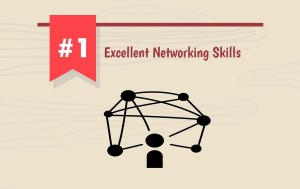Are you worried every time you are making a recruitment call? Do the candidates keep snubbing you? Does the hiring manager get tired of the countless resumes received from you? Now is the time to change all that.
Here I will give some useful tips of the profession that will help you be a sought-after recruiter and be an expert in the field.
According to Wikipedia, recruitment is the overall process of attracting, selecting and appointing suitable candidates for a certain job profile. Recruiters according to their functioning can be either in-house, independent or associated with some recruiting agency. Recruiters are usually involved with the whole process of recruitment.
Recruitment process is not just about calling a person to find out the availability for a required profile. There are lot of things that have to be considered before making out a call to the right candidate.
If you do not do your research before contacting a candidate, then you may end up wasting a lot of precious time and the position may not be filled up in time, which will decrease the productivity of the team.
What it takes to be a great recruiter? This is a question that comes to every person in the profession when there are so many limitations in the area of their expertise. If you look at the traits of successful recruiters from different industries, you will find they all have the same skills and characteristics when it comes to recruitment. Here I will discuss five of the important characteristics that can help you to be a great recruiter:
Excellent Networking Skills
Time and again you should realise that since you are in the ‘people business’ you should know how to build up good relationships with people. Try to build quality relationships based upon quid pro quo; professional give and take activities help in the long run to build a solid network of professionals. If you help the candidates or the hiring manager to get the perfect match, it will provide the recruiter with loyalty and commitment.
Great Influencing Ability
Whether it is face-to-face, telephonic or via email, all successful recruiters have amazing influencing skills. You will find that their personality has a charismatic touch, through which they achieve to make the candidates to think about the interview offer.
Good communication skills are of the utmost importance if you want to succeed as a recruiter. You cannot care to make one wrong move while having a conversation with the potential candidate.
Embrace Technology
It is understood that recruiters are not necessarily technology nerds but a good understanding and the acceptance of technology is needed to become successful when it comes to hiring people who are advanced in that field. As online assessment and interviews are needed for outstation candidates, it is also important for recruiters to adapt to their capabilities regarding the use of technology.
Honesty and Confidence Goes Hand in Hand
What every candidate wants from recruiters is that they be transparent about the job profile they are hiring for. Any dishonesty on your part and they will vanish at the first hint. It is important to maintain the relationship which will offer you a good network of professionals in the future. And with honesty, comes confidence; if you are confident enough that it is the right job profile for the confident you should be able to describe it flawlessly.
Good Listeners
To be honest, all candidates want their requirements to be fulfilled before accepting any job interview, so you have to be good listeners as well. If you do not get what the person is looking for from the position you will ultimately make the wrong person turn up for the interview, which will issue deep misunderstanding and eventually lose the trust of both the recruiter and the candidate.
If you have got the above characteristics rightly, your recruiting career will be a lot easier than you expect, and catapult you in the right and successful direction.
Author Bio
Hasib is a foodie and an avid reader with the same voracious appetite. He is interested in the current trends in job market and time to time writes about employment and career related topics. Reach him @ twitter, LinkedIn
Sponsored Ad







